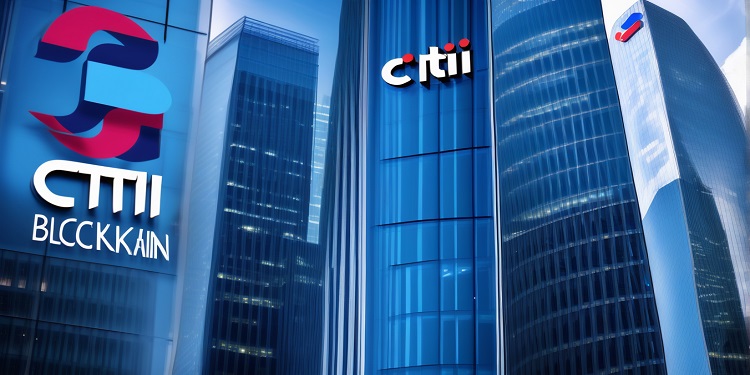Two major global financial institutions, Citi and Société Générale, are advancing blockchain initiatives with innovative solutions that aim to modernize traditional banking systems. Speaking at Benzinga’s Future of Digital Assets event, representatives from both organizations highlighted the strides their companies are making in tokenization and digital finance. These efforts reflect a growing commitment to leveraging blockchain technology for improved efficiency, transparency, and scalability in financial services.
Citi Unveils Tokenized Digital Cash System
Citi introduced its tokenized deposit solution, branded as Citi Digital Cash, which facilitates inter-branch cash movements between the United States and Singapore. This live and operational system is designed to streamline transactions within the bank’s network, ensuring faster and more efficient internal cash transfers.
Citi emphasized that integrating digital solutions with traditional financial frameworks is essential to meet the rising demand for access to both conventional and digital assets. By launching Citi Digital Cash, the institution is positioning itself as a leader in infrastructure modernization while adhering to regulatory requirements. The bank views the integration of digital tokenization into its internal processes as a step forward in improving client experiences and enhancing transaction efficiency.
Société Générale Launches Euro Stablecoin on Ethereum
Société Générale, through its digital asset subsidiary SG Forge, has issued a euro-denominated stablecoin designed to operate on the Ethereum blockchain. The stablecoin adheres to the European Union’s Markets in Crypto-Assets (MiCA) regulations, making it a compliant and secure solution for digital payments.
The bank structured SG Forge as an independent, ring-fenced entity to ensure operational flexibility while maintaining compliance with its overarching governance standards. This approach reflects a broader trend among financial institutions to separate digital asset operations from their core banking functions to facilitate growth and innovation.
Société Générale believes that launching a MiCA-compliant stablecoin represents a significant development in digital finance, offering a scalable and reliable alternative for cross-border transactions and payments on a public blockchain.
The Growing Role of Tokenization in Banking
Both Citi and Société Générale highlighted the transformative potential of blockchain, particularly through tokenization. Citi pointed out that the programmability inherent to blockchain technology allows for pre-set conditions and automated workflows, significantly improving transparency and reducing operational inefficiencies.
The tokenization of assets and transactions not only enhances speed but also provides financial institutions with new tools to optimize processes, enabling real-time settlements and better liquidity management. For Société Générale, the successful implementation of a public blockchain-based stablecoin demonstrates how digital finance can operate effectively within heavily regulated environments.
Challenges in Blockchain Integration
While both banks have made considerable progress, the integration of blockchain into traditional finance is not without challenges. Regulatory ambiguity remains one of the most significant hurdles, as institutions await further clarity from financial authorities. Société Générale emphasized that regulatory bodies are still adapting to blockchain technology, which has slowed its broader adoption.
The absence of regulatory frameworks that fully embrace blockchain also limits its application in certain processes. For instance, the reliance on traditional methods continues because key regulations, such as those related to transfer agents, have yet to recognize blockchain as the definitive source of truth for transactions.
Citi further noted the importance of ensuring interoperability between blockchain systems and existing financial networks. Collaboration between financial institutions and technology providers will be essential to overcoming this challenge and achieving scalability in blockchain applications.
The Future of Digital Finance
The advancements made by Citi and Société Générale signify a broader shift in the financial industry toward blockchain-driven solutions. These efforts underscore the potential of blockchain to reshape banking processes, reduce costs, and improve transparency while maintaining compliance in regulated markets.
As blockchain technology evolves, financial institutions are likely to play a pivotal role in integrating digital assets into mainstream financial systems. For clients and businesses, these innovations mark the beginning of a more interconnected and efficient financial ecosystem, driven by automation, tokenization, and secure digital solutions.
With their focus on delivering practical, compliant, and scalable blockchain solutions, Citi and Société Générale are leading the way in demonstrating how traditional banking can adapt to and benefit from blockchain technology. Their initiatives are not only transforming internal processes but also setting the stage for broader adoption of digital assets across the financial sector.
